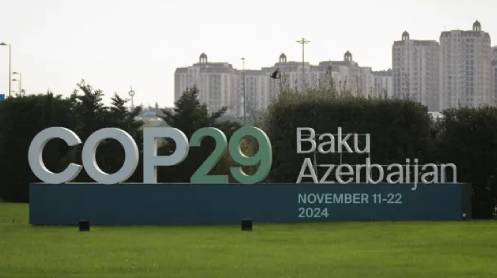BAKU – The COP29 climate summit in Azerbaijan concluded with agreements on climate finance and carbon market frameworks, but lingering uncertainties leave businesses seeking more concrete details. While the summit pledged $300 billion annually in climate finance by 2035 and advanced rules for carbon offset trading, the outcomes remain insufficient for many developing nations and private sector stakeholders.
Key Outcomes and Challenges:
Finance Commitments: The $300 billion annual climate finance target prioritizes vulnerable nations but lacks interim milestones. Multilateral development banks pledged $65 billion annually from private investment, yet specifics on mobilizing funds remain unclear.
Carbon Market Boost: A central registry for carbon offsets aims to enhance market transparency, encouraging investments while addressing reputational risks. However, concerns about credit quality persist.
Uncertain Transition Path:
The pace of the green energy transition faces challenges as fossil fuel lobbying and geopolitical tensions, including the Ukraine war, hinder progress. COP29 failed to advance last year’s COP28 goals of phasing out fossil fuels and tripling renewable energy capacity by 2030.
Adding to uncertainties, the return of Donald Trump as US President has raised doubts about America’s climate finance contributions and supportive policies for global green investments.
Road to COP30:
Countries are expected to submit national climate plans by February 2025, outlining specific, investment-ready projects to attract private funding. Business leaders emphasize the need for regulation and policy implementation to convert pledges into actionable goals.
“The influence of fossil fuel lobbies remains a significant obstacle ahead of COP30,” warned David King, Chair of the Climate Crisis Advisory Group, underscoring the need for stronger commitments to address climate risks and attract sustainable investments.





